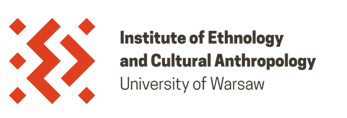International students
International Relations Office (IRO)
ul. Krakowskie Przedmieście 26/28, 00-927 Warszawa
Casimir Palace, 2nd floor
Erasmus+ and CEEPUS Coordinator
dr Karolina Bielenin-Lenczowska
email: k.bielenin@uw.edu.pl
dr Hubert Wierciński
email: hubertwier@gmail.com
Why study cultural anthropology in Warsaw?
When considering studying or doing anthropology in Poland, Warsaw can be an interesting option, both because of the city itself but also because of its University, and the Department of Ethnology and Cultural Anthropology.
The Department offers only a few courses in English but there are several helpful, English speaking staff, who can advise you and suggest other courses or readings, and the Department has a well-stocked and up-to-date library. Graduate students are also very friendly and open to co-operation: the Department has already had good experiences in international student co-operation in the form of summer schools, fieldworks (yes! foreign students were able to do some fieldwork with their Polish counterparts) and student conferences.
Poland seems to be a very good place to study post-traditional, or post-peasant communities, as well as developments within discourses related both to memory (e.g. so-called "politics of history”), and transformations (post-socialist restructuring). Fortunately, for all these topics you will find knowledgeable people among the English-speaking teachers of the Department.
The Department is not the only ethnology and anthropology-related place in Warsaw, and there is always an opportunity to broaden your anthropological horizons by contacting the Institute for Ethnology and Archaeology of the Polish Academy of Sciences, or the Polish Institute for Anthropology (carrying out different activities aimed at popularising anthropology, among them public lectures of internationally acclaimed anthropologists organised in the University premises), or visiting the Ethnographic Museum and possibly taking part in its different activities.
And in case you speak some Polish — check our study programme and dare to study anthropology in Polish.
Ewa Klekot


